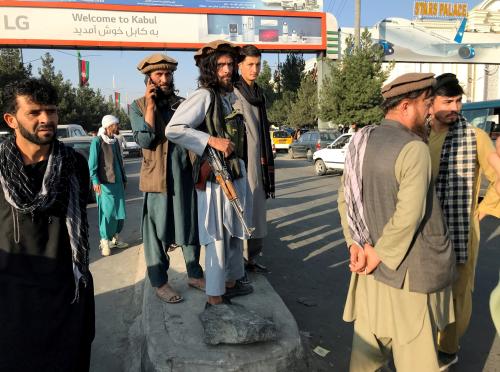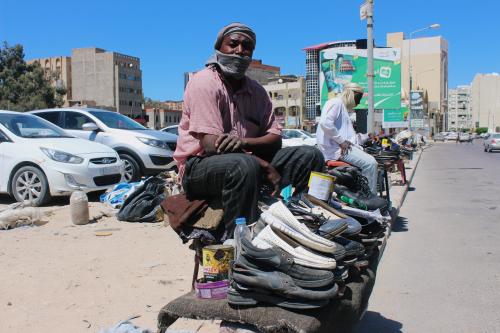WASHINGTON – For the United States, the war in Afghanistan has been a quick success. For the people of Afghanistan, the situation is different. While Afghans in Kabul celebrate the end of Taliban tyranny, in much of the rest of the country lawlessness and banditry are growing and millions are near starvation.
International relief agencies have enough food in Afghanistan and nearby to feed six million people for at least a month, but they cannot distribute it safely. On many important roads, aid convoys have been attacked. Truckers dare not travel to certain provinces, and in Mazar-i-Sharif and other cities where there is fighting, armed groups have sacked and occupied aid offices and warehouses.
Afghan leaders negotiating in Bonn have agreed to the establishment of a limited international security force. The United Nations Security Council is scheduled to act on this matter sometime later this week, but all that’s envisioned now is a small force to maintain stability in Kabul and possibly one or two other cities. That is hardly enough.
The world should provide a more substantial force, with a broader mandate?to restore security for food distribution and to protect civilians, including the many internally displaced Afghans, people who have fled to camps in their own country. Thousands of them are subject to violence in the camps or are living in the open without shelter.
European nations have been pressing for such a force. The American position is that we must first finish the war against Osama bin Laden, but now that this military objective is close to being achieved, the Bush administration still shows little sense of urgency about protecting Afghan civilians. It does not want more than a limited international peacekeeping force for Afghanistan and appears hesitant to become directly involved in any broader nation building. Administration officials talk about handing over security to an all-Afghan force, but such a force cannot be assembled in time to ensure the delivery of aid before the current winter season takes what could be an enormous toll.
This week in Uzbekistan, Secretary of State Colin Powell will press for the opening of a major bridge to allow more relief supplies into Afghanistan; and the Americans’ clearing of airfields near Kabul and Kandahar should help relief agencies. But without a broader security effort, these piecemeal actions will fall short.
What’s needed?and needed now?is an international force that can accompany and protect relief convoys and workers, expel warring factions from displaced persons camps and help rid Afghanistan of the more than five million land mines that keep its citizens from living and farming in their home villages.
At the beginning of the bombing campaign, President Bush and other senior officials pledged American support for the people of Afghanistan. We have a moral and political obligation to fulfill that pledge. We also have an obligation to our own interests. Once before we left Afghanistan too soon, and it fell into the hands of Osama bin Laden and his allies. If through a sense of exaggerated caution we allow mass starvation and lawlessness to take hold now, we will be making another mistake.


Commentary
Op-edThe Hungry Country
December 9, 2001